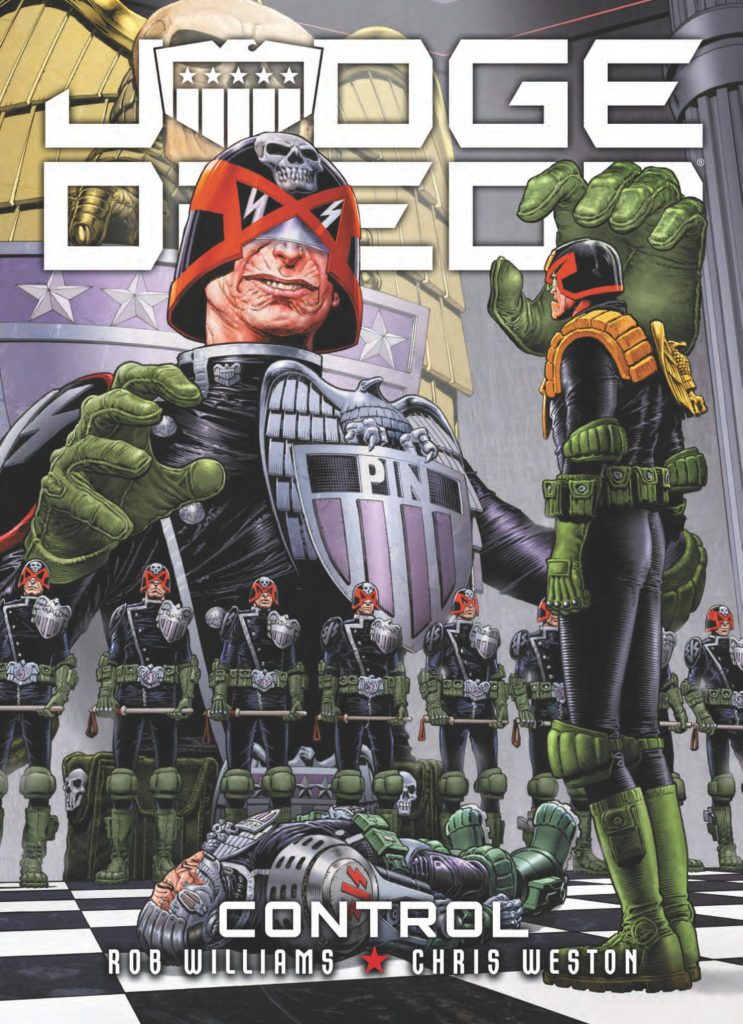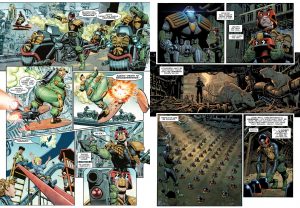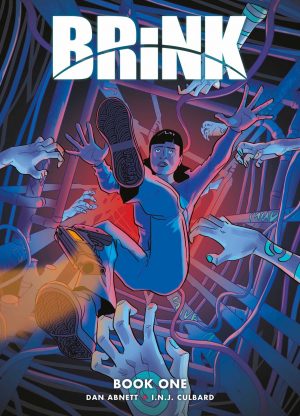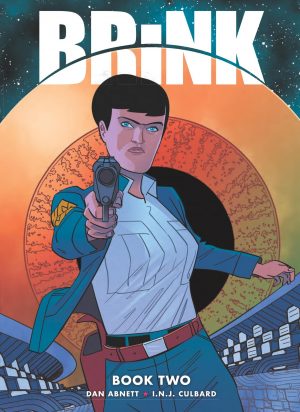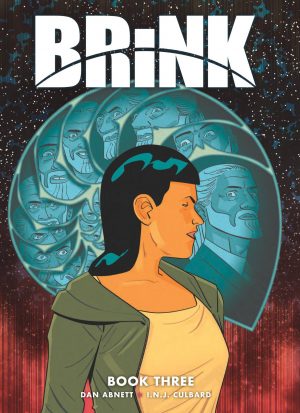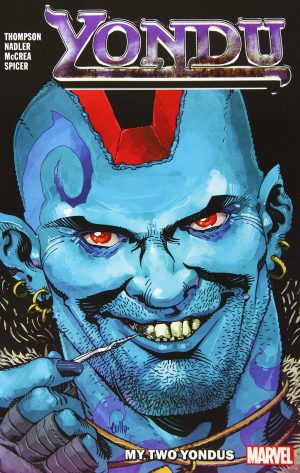Review by Frank Plowright
Control gathers Judge Dredd stories on which Rob Williams and Chris Weston collaborated over a seven year period from 2012. The opening half all feature Judge Pin, an elderly Judge from the Judicial Squad, who oversee the Judges and call them to account for breaches of regulations and discipline. We see early that she has her own idea about enforcement, and doesn’t consider the standard rules adequate, so she settles accounts personally.
The short of it is that she’s completely mad and in a position of authority, and while that may bring Judge Cal to mind, this is a different form of madness, not unbridled, but confined and anchored to an ideal. It makes for a different challenge for Dredd. Williams and Weston reveal to us what’s going on right from the beginning, but it takes Dredd far longer to realise something’s seriously wrong. That’s because, as the stories occur over a prolonged period, he’s preoccupied with the covert investigation that concluded in The Small House.
Weston’s pages are astoundingly good. Over the collection Williams dips into a variety of moods, and whether it’s comedy or horror it’s drawn equally well, and with an incredible attention to detail. No other artist used on 21st century Dredd provides detail like Weston. The sample page shows that on the Judges’ bikes, but it’s there even in the backgrounds of other pages, such as the debris seen in Pin’s private graveyard of helmets from Judges she’s executed. Whether that idea was generated by Williams or Weston, it’s Weston’s draughtsman’s eye that provides the impact. He’s called on to illustrate the past, and some familiar foes, all meticulously handled.
Pin is dealt with over the first half of Control, leaving the second as almost a catalogue of the many types of story Judge Dredd can accomodate. There’s the pathos and danger of being a Klegg in the city, the whimsy of a plan to stop crime while the Judges have a holiday (a theme Williams returns to in End of Days), and the satire of Mega-City’s self-appointed fashionistas contrasted with the gutterati. There’s also good use of what’s been established in Mega-City, with the Hunter’s Club and the Ape Gang recycled from the first few years of Dredd, presumably when Williams was a youngster.
The final two stories are also written by Weston, who provides workable plots for both. The first has a satellite defence unit going rogue, and in the second Cadet Dredd meets Grudzilla when he’s assigned to protect the star of a Hondo-Cit movie. Weston has a handle on the mixture of eccentricity and danger needed for a Dredd outing, and the art is exceptional, the first story even showing how much of Don Lawrence has made his way into his layouts. A set of stunning covers to the 2000AD issues in which the stories originally appeared rounds off an appealing package.
